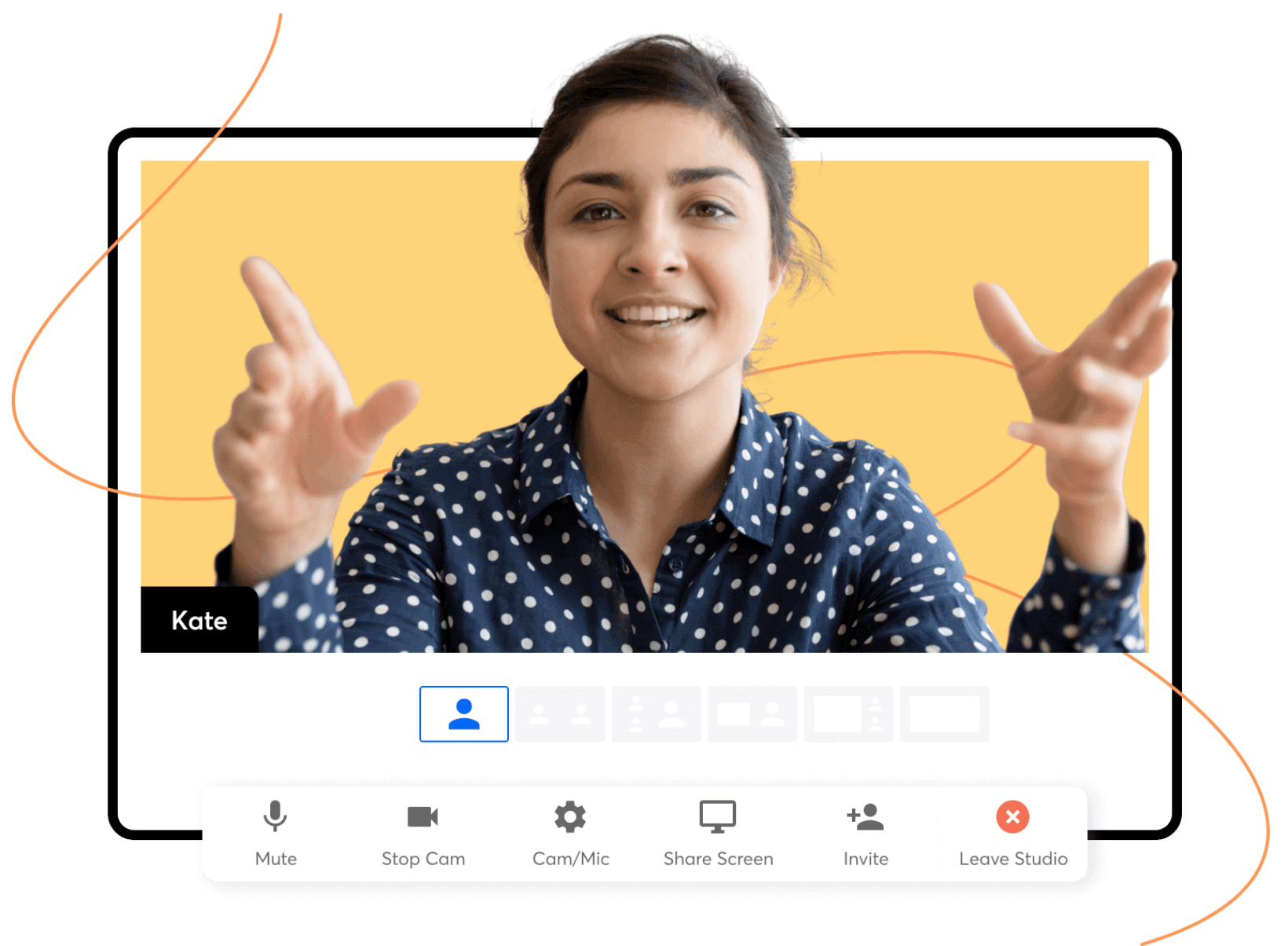Apps that change form constantly
Application lifecycle management(alm) is essential because of:
Changing requirements
During the software development life cycle (SDLC), requirements can change constantly. These then necessitate changes to your apps and solutions.
Prototype iterations
The development team will iterate upon the prototype throughout the SDLC. Developers add, modify, and delete features to ensure they can ship quality software.
Feedback-based modifications
Stakeholders will continuously provide feedback on the deliverables. To smoothly incorporate these changes, the proper mechanisms need to be in place. Enter lifecycle management.
See how you can manage the lifecycle of your apps
Get a glimpse of the capabilities of Zoho Creator's application lifecycle management features in this short video.
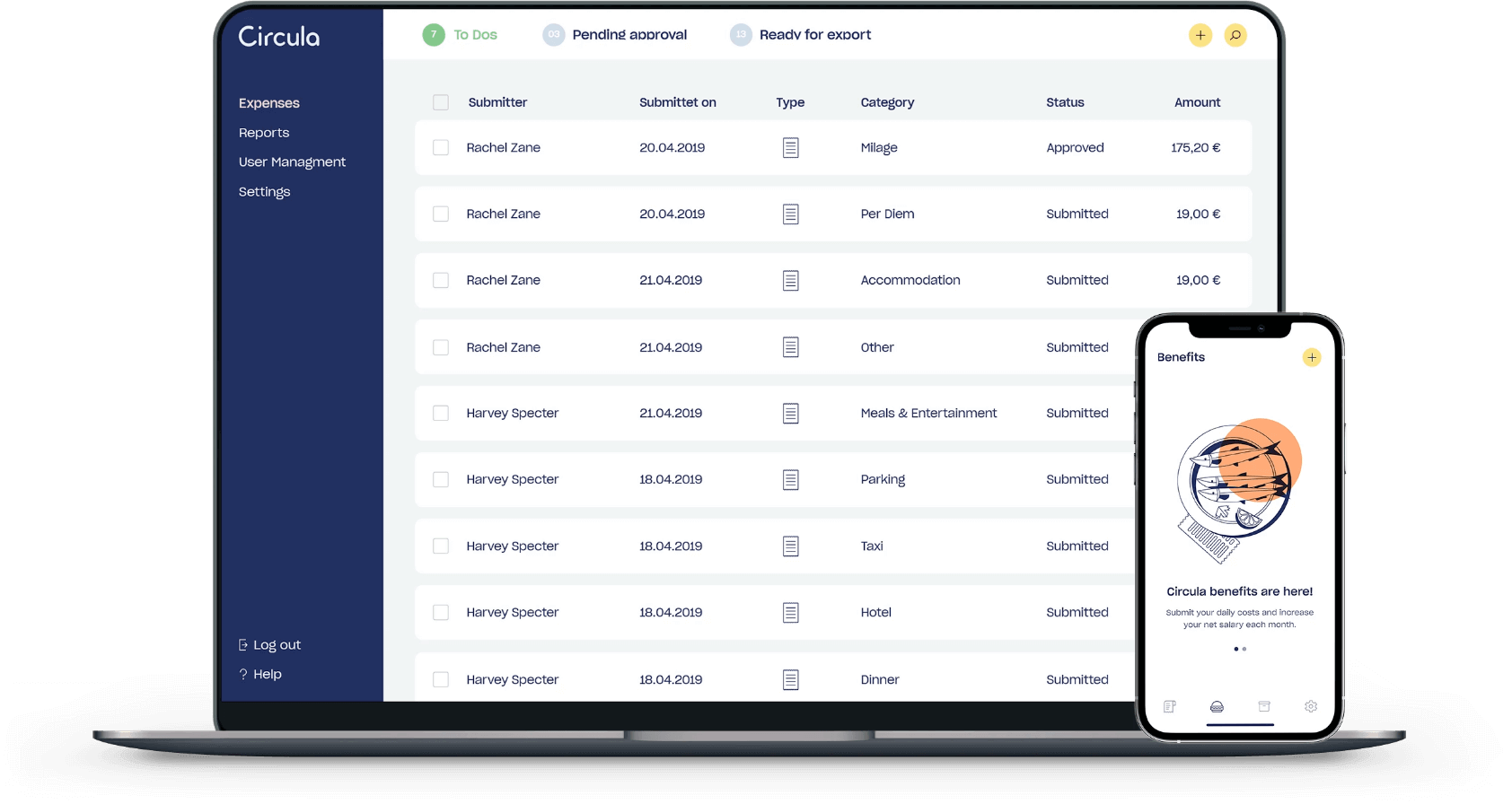
Develop better, test better, deploy better
Zoho Creator offers the following phases of application lifecycle management to ensure you can effectively manage changes to your apps.
Development
Build your apps in this phase. Make modifications to them, add enhancements, and improve upon previous product iterations.
Stage
Transition the changes made in the development phase to the staging phase. In this phase, you can approve/iterate changes made to your apps. Testers can also evaluate the changes made.
Production
Deploy your tested, validated apps to your users.
Everything you need to monitor your apps from start to finish
The comprehensive application lifecycle management features offered by Zoho Creator allow you to manage your apps from ideation to deployment. This feature allows you to implement continuous development and deployment, greatly assisting your developers.
Track changes and publish as versions
Track changes made to your apps as version numbers in two ways: major version numbers (for critical changes) and minor version numbers (for small changes). You can granularly select which version of your app you want to publish.
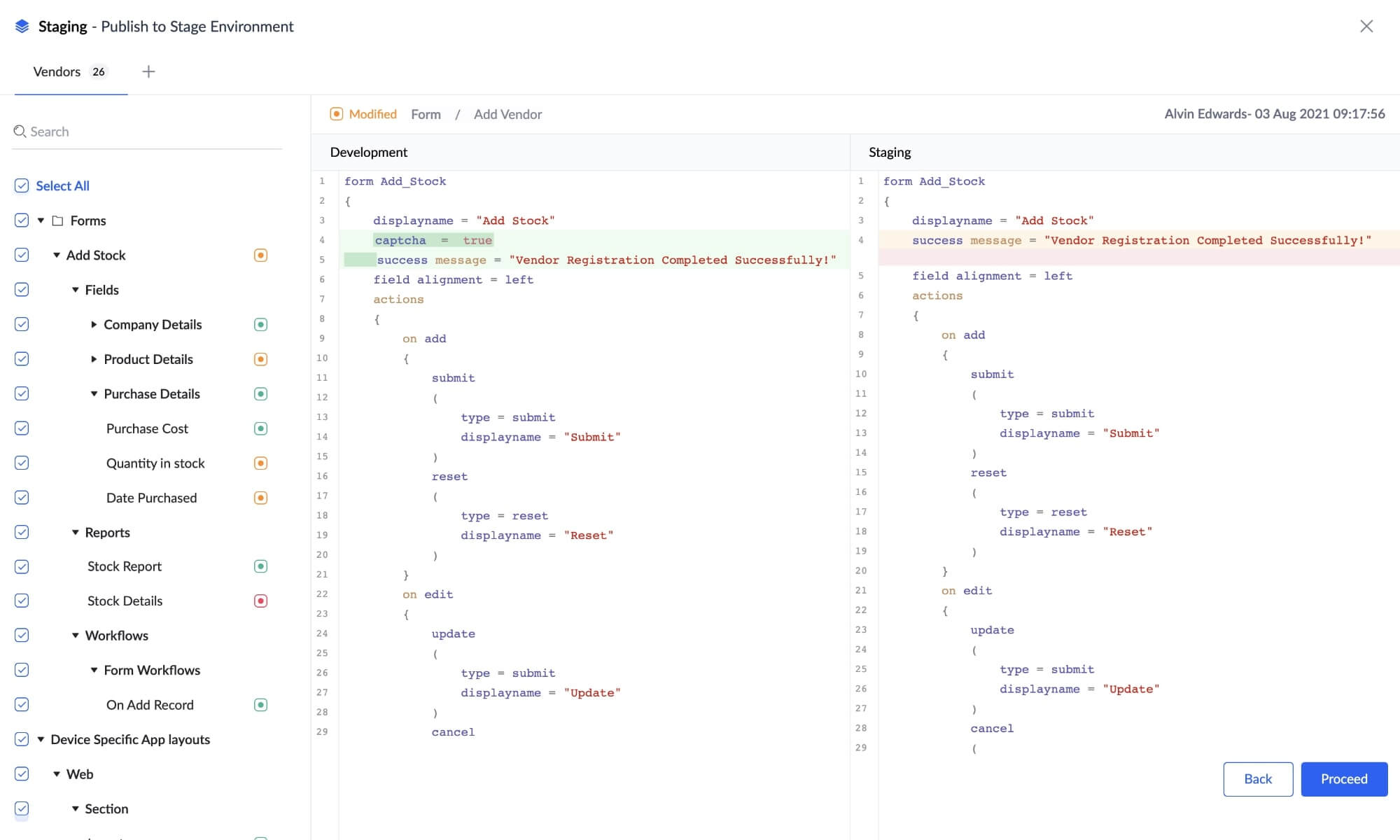
Deploy apps with dependencies easily
You might have entities that reference and are dependent on other apps. While publishing, this feature allows you to select the dependent apps along with the related modifications automatically.
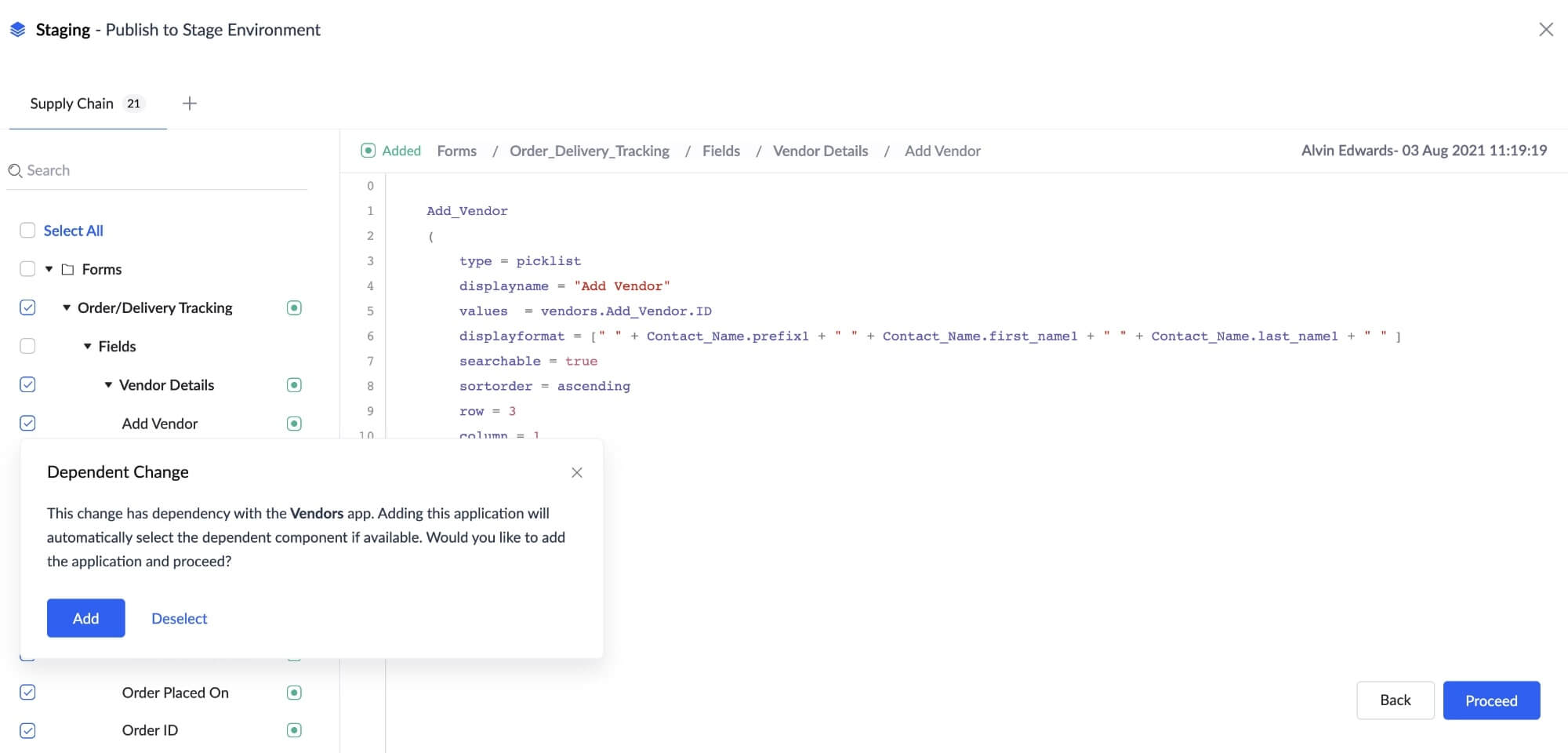
Schedule publishing
You can publish the changes to your apps immediately, or schedule them to deploy to production at a set time.
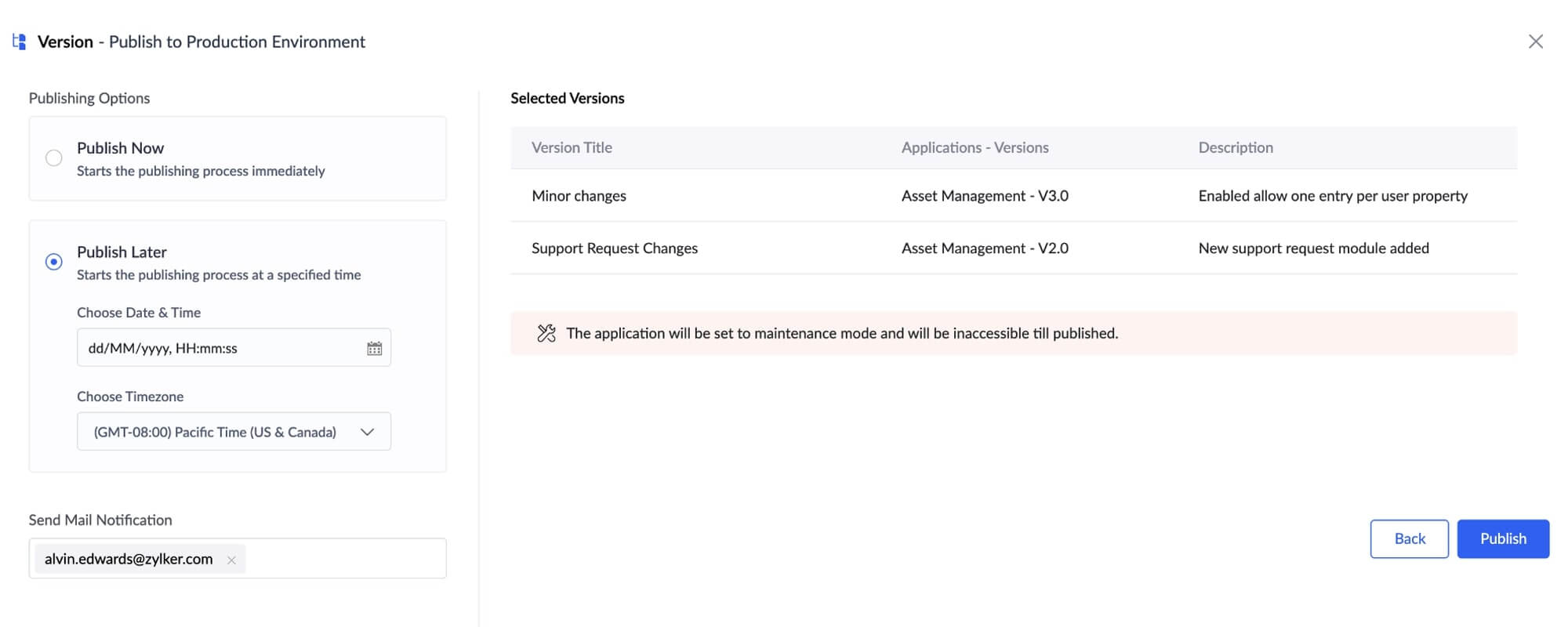
Validate before publishing
The validation status page warns you about data loss before publishing. Before deploying your changes, you can view possible data loss caused by forms and fields deleted during development.
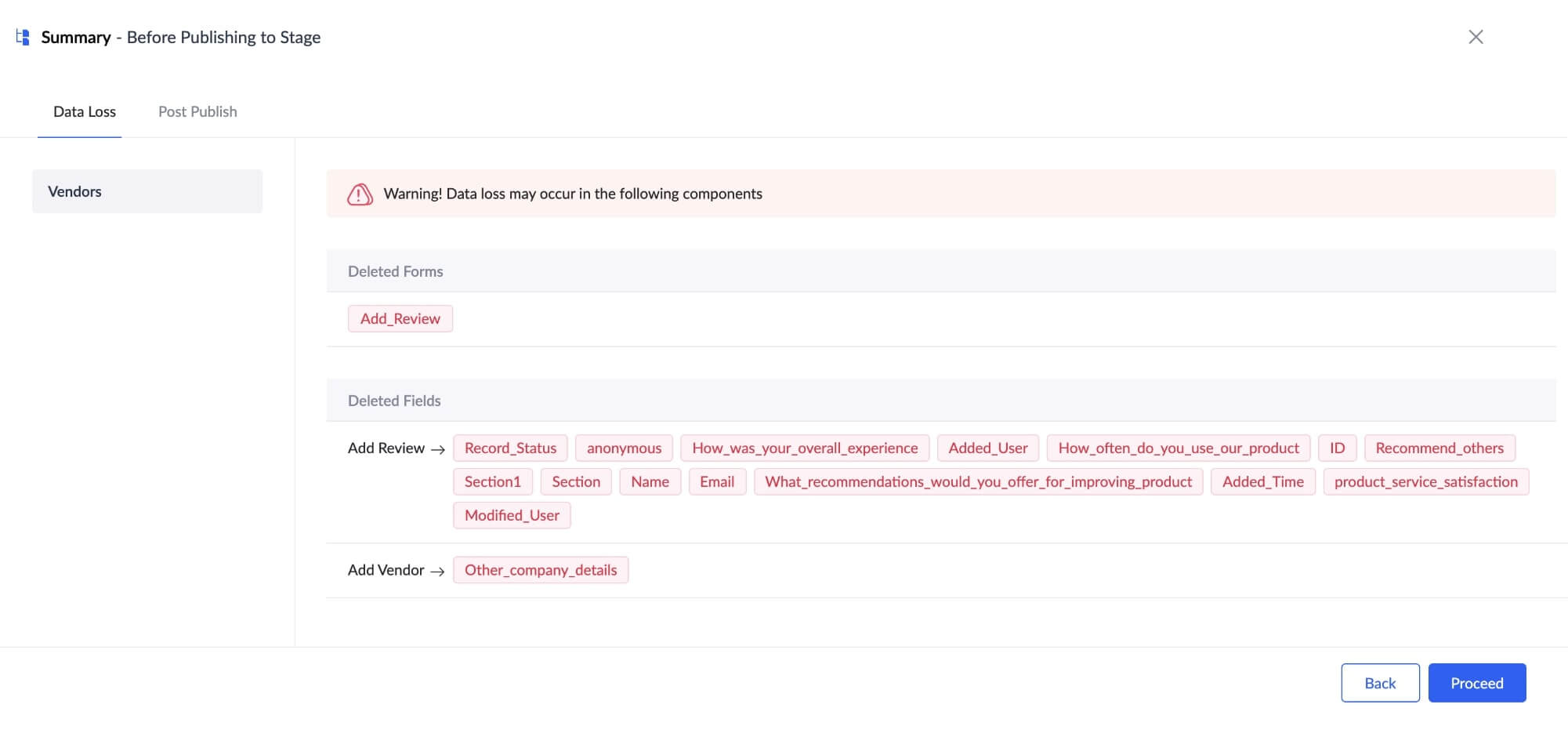
View errors during publishing
The publish status on the environment page shows you details, in case of any errors, upon publishing.
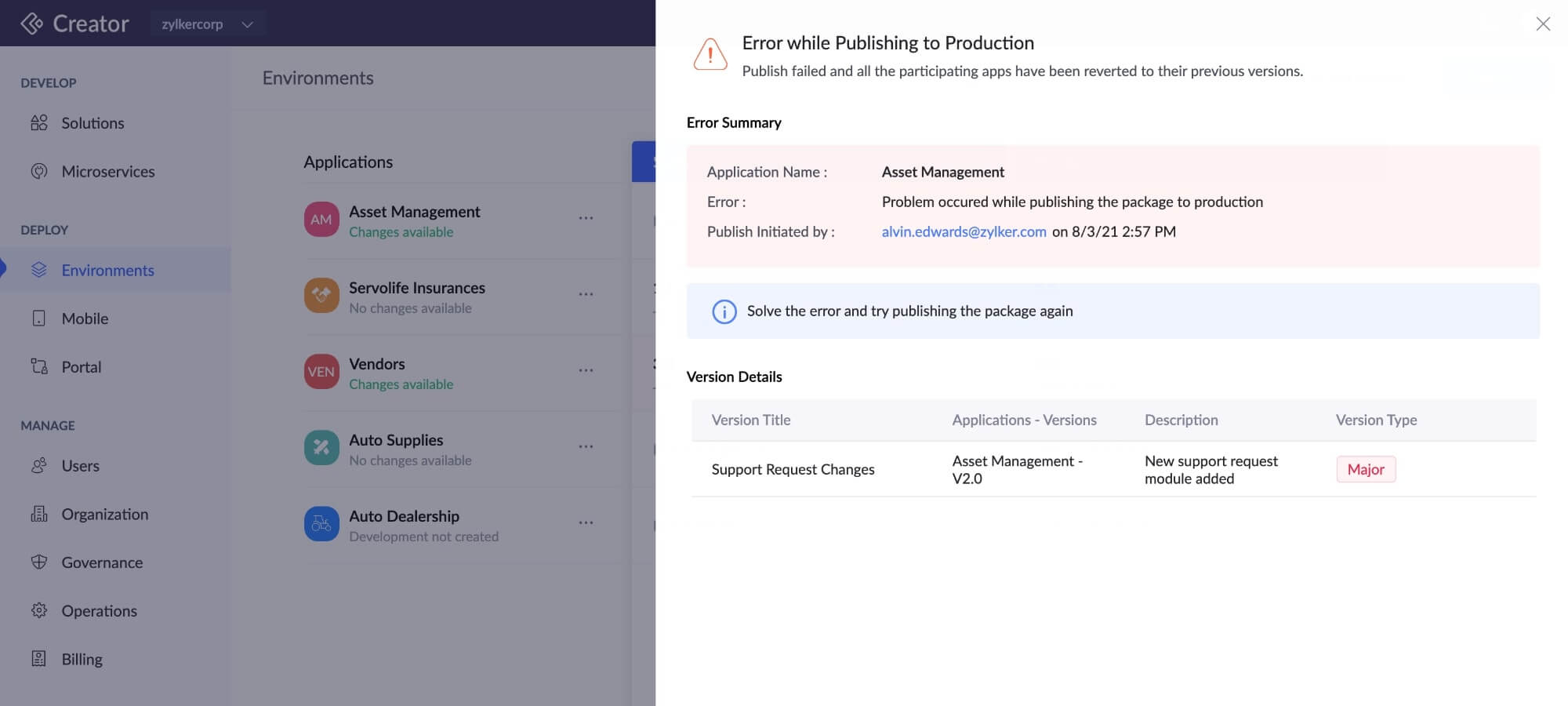
Prevent data corruption
When publishing changes made to your apps, the live mode of those apps are locked. This is to prevent data corruption during publishing.
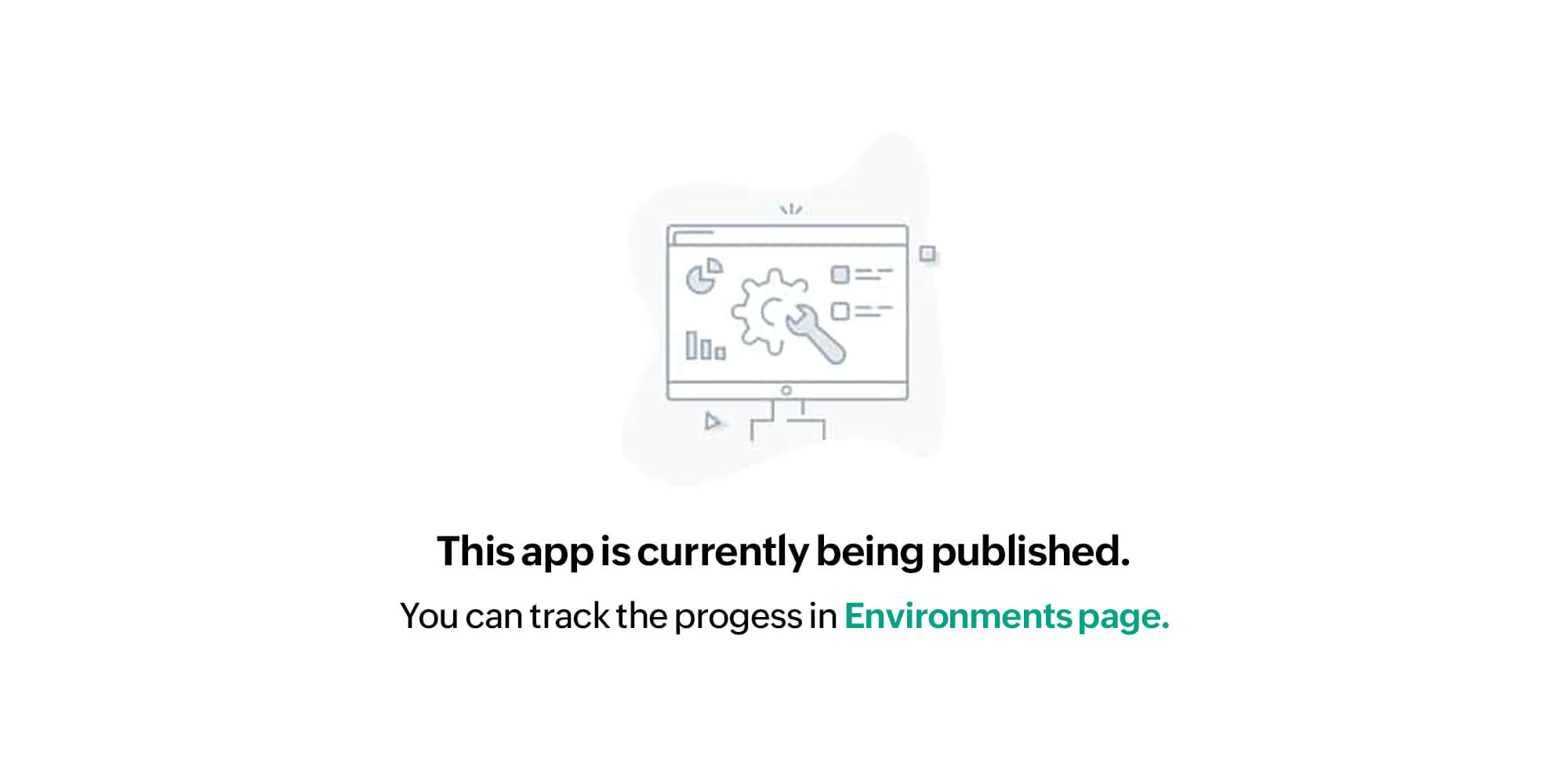
Trace bugs
The version history feature allows you to trace bugs in your apps sequentially.
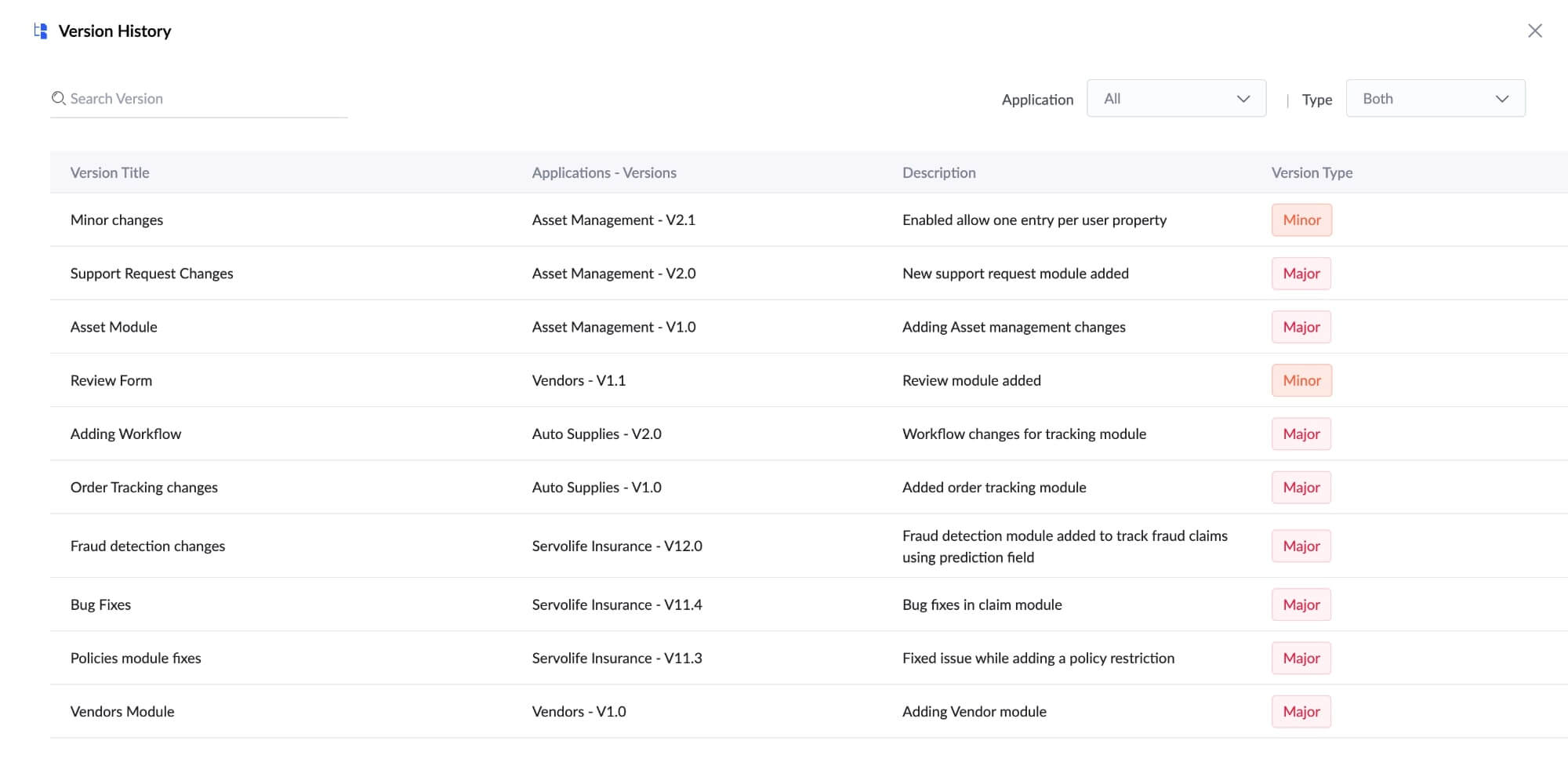
Test user permissions efficiently
Using the Demo Users feature, you can test out the features and flows specific to the privileges of your users. This feature provides a drop-down which allows you to instantly switch between your organization's different types of users. You don't need to separately log in as each type of user to validate their access rights for the features and flows.
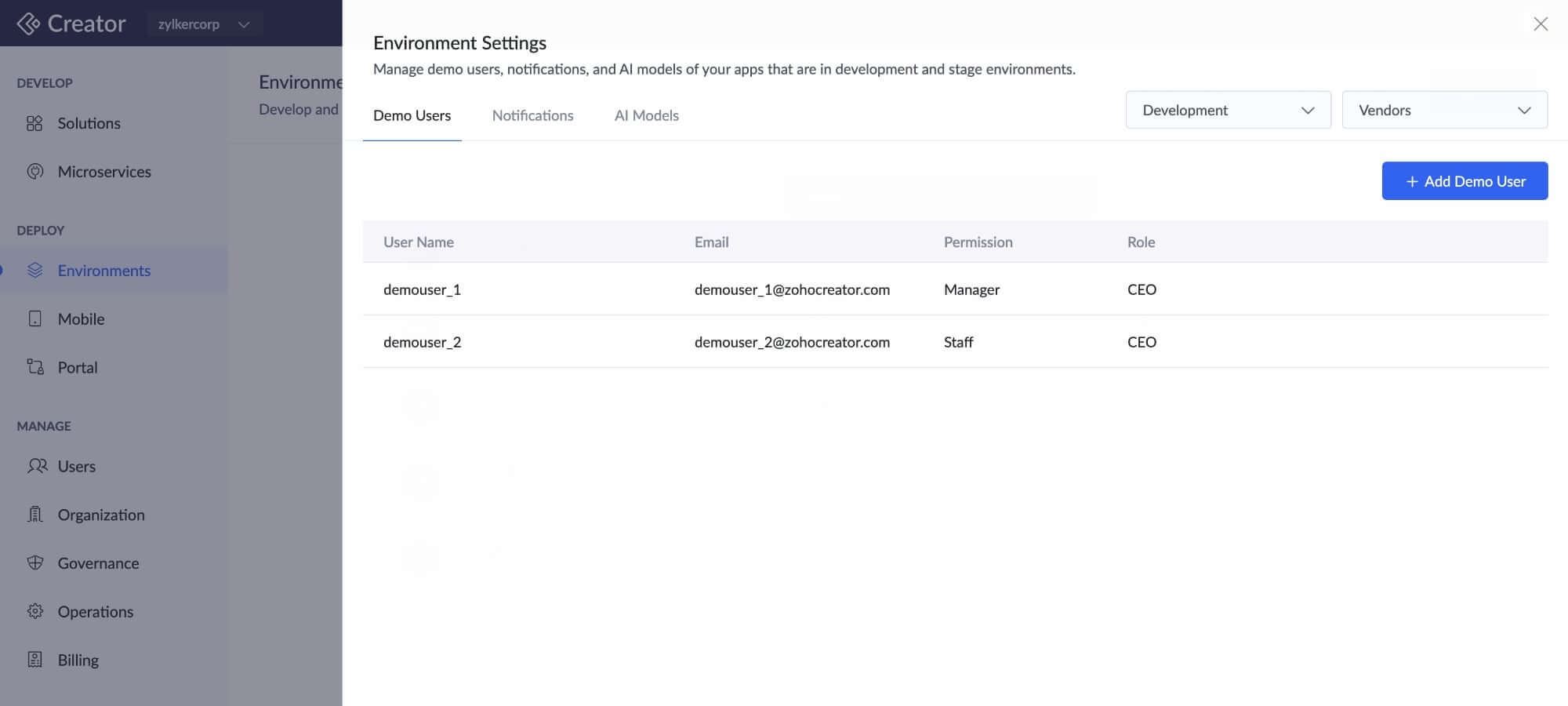
Alert users about changes
Configure email alerts to notify users about changes made to your apps.
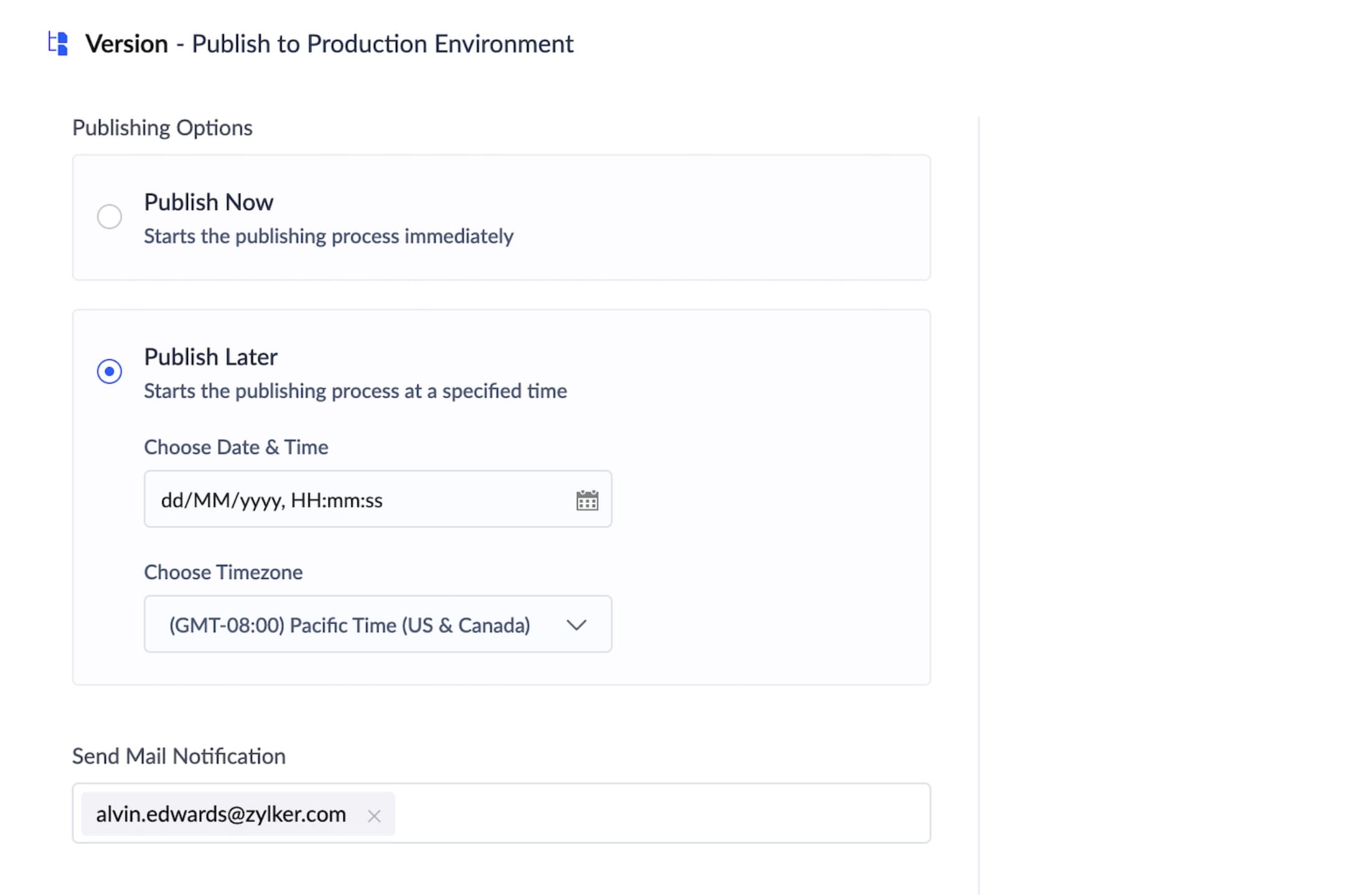
Explore relevant features
The definitive solution for managing your apps' lifecycle
Try for freeFrequently Asked Questions
With Zoho Creator's application lifecycle management features, you can granularly control how your developers receive notifications. Add/delete which users will receive notifications, or even disable notifications for all users.
The Demo Users feature allows you to quickly switch users using a simple drop-down interface.
Using the Schedule Publish feature, you configure deployment to happen at a time of your choosing. Your changes will be published to production at this stipulated time automatically.
No. The person who modified the component last will be treated as the change owner while publishing the changes from development to stage.
No. The changes always have to go through development, stage, and production.
No. You can edit the app only in the development environment. Only then can you publish to stage, and then to production.
